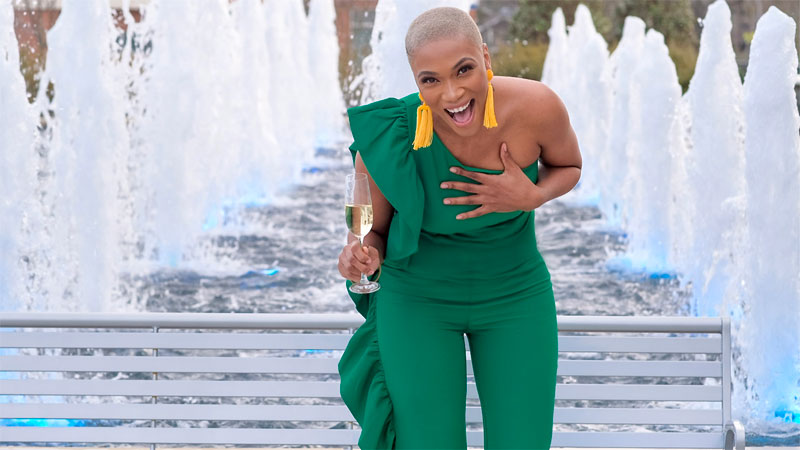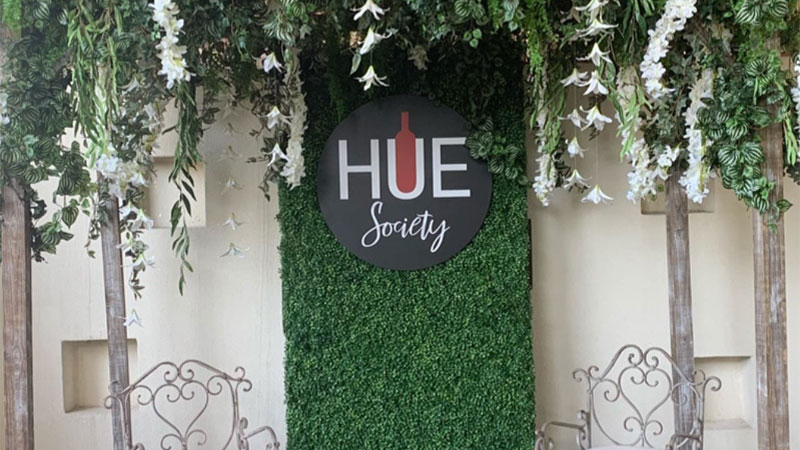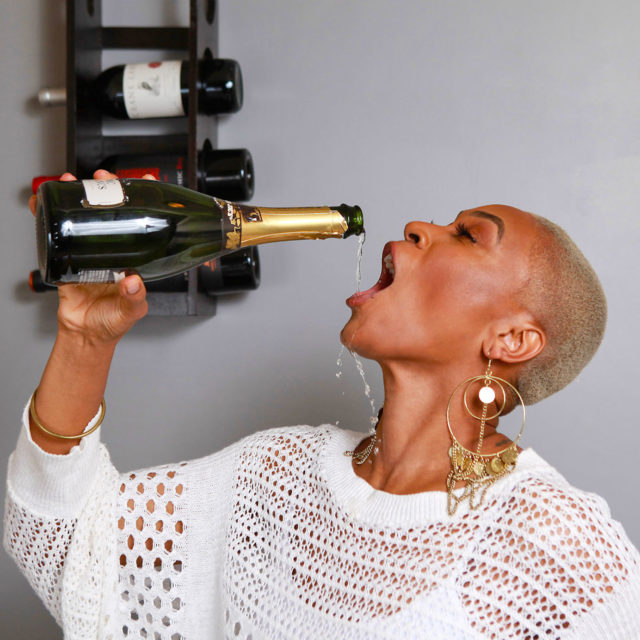“Wine is power,” says sommelier and entrepreneur Tahiirah Habibi. “Wine is a booming financial business — I’m talking billions of dollars in an industry that we have not even fully tapped into because we don’t know how to navigate it.”
Habibi created Hue Society, a community of black wine professionals, in 2017. Her inspiration? An important mentorship and a Jay-Z lyric.
She was walking down a Philadelphia street in early 2017 listening to Jay-Z’s “4:44” album when she heard this line: “What’s better than one billionaire? Two (two), ‘specially if they’re from the same hue as you.” It was a breakthrough moment. Hue Society launched soon thereafter.
“Hue is about creating access. A hub where anyone can come and find information on black wine culture,” Habibi says. “I’m creating an umbrella that we can all get under to share everything from events to mentorship. I knew we needed a common place where people who look like me knew where to go if they were looking for anything involving wine, and to feel safe in doing so.”

Habibi’s wine experiences began at college gatherings and functions. After she graduated, she happened to work at a restaurant in Philadelphia where the wine director was a woman. This seemingly simple representation encouraged her to pursue wine education, and ultimately changed the course of her career.
Two years of night classes later, Habibi moved to Miami, where she worked as a cocktail server for six months before landing a sommelier job at the St. Regis. It was the job she’d been working toward for quite some time, but it didn’t come without its challenges and obstacles.
“I would always get either this excited response or this shocked look when I would show up at the table as the sommelier, and sometimes I would even be sent away,” she says. “I’d get quizzed and challenged at tables before people would let me give my recommendations, even though sometimes I’d written the list!”
She credits mentors with helping her navigate her career, and strongly espouses the importance of community.
“I knew going into it that there was a lack of diversity,” she says. “I figured out quickly how to conduct myself with wine — I knew it was a skill I had to learn to navigate because a lot of times, I was the only black person in the room. I didn’t meet another black person or even hear of one for years after I started. That’s not to say that we didn’t exist, but we were scarce.”
Shall We Wine CEO Regine Rousseau agrees, remembering her first gig in the Chicago wine scene back in 1997. “I can’t recall meeting any other black women in the wine business at that time,” she says. “I now know that there were others, but social media wasn’t a thing, and we had no way of connecting.” Rousseau says the challenges of being “an only” in wine circles were the same in 1997 as they are today: “If you are different, if you are anything other than the community norm, it is difficult to form allies,” she says. “Without allies your opportunities are limited. So we others are often overlooked, forgotten, and just aren’t seen.”
It can be “a bit overwhelming and intimidating” for women of color to self-identify as wine experts, explains Chasity Cooper, a drinks writer and VinePair contributor. “There aren’t many black women who are specifically writing about wine and culture,” Cooper says. “Over time, I’ve had to shift my mindset and look at being ‘one of the only’ as an opportunity instead of a challenge — an opportunity to tell OUR stories of navigating this industry successfully in the most authentic way possible.”
The phenomenon extends to the vineyard. “My sister Robin and I have been vintners going on 15 years and meeting other black women in the industry has always been a challenge,” says McBride Sisters Wines co-founder and CEO Andréa McBride John. “That scarcity still exists today, which is why Tahiirah’s efforts are so critical to women of color in wine.”
“I’m fighting for visibility, for respect, and exposure in an industry where we have historically gone unnoticed,” Habibi says. “My goal is to change the narrative so that when you see a black sommelier, you won’t be shocked, or when a black woman orders a glass of wine, you won’t assume she wants something sweet. We have to get past these stereotypes.
“I need people to see that there is a black wine community out there, and here’s where you’ll find it.”

Hue Society’s cornerstone New Orleans event, The Black Wine Experience, brings together dozens of the community’s top entrepreneurs, personalities, and producers with an audience of over 200 wine professionals and enthusiasts every July. It includes three days of tastings, panel discussions, events, and the like.
“I have never seen so many black wineries and industry professionals together in one place ever as there were at The Black Wine Experience! I was surprised, excited, and proud all at once and realized this is something special,” says Robin McBride. “It’s so refreshing to have space where you can let down your guard, make connections, and share experiences with wine professionals who can relate to each other’s journey.”
Cooper says this kind of space is especially important, given the wine community’s traditionally white male demographic. “Tahiirah has created a welcoming space for us to engage with wines freely, to ask questions and receive the right education, and to explore with our palates wines from around the world,” Cooper says. “In order for us to continue to disrupt these ‘traditional’ spaces, we must keep coming together, supporting each other, and creating our own unique opportunities.”
The success and expanse of the Hue Society serves as a powerful reminder to the wine industry of the spending power of black Americans. “She is showing African American consumers that their dollars count and that there is room for us in this wonderful world of wine,” Rousseau says.
“I believe it is our duty to use our skills and gifts to uplift our communities,” Habibi says. Imagine what could happen if we all did.
